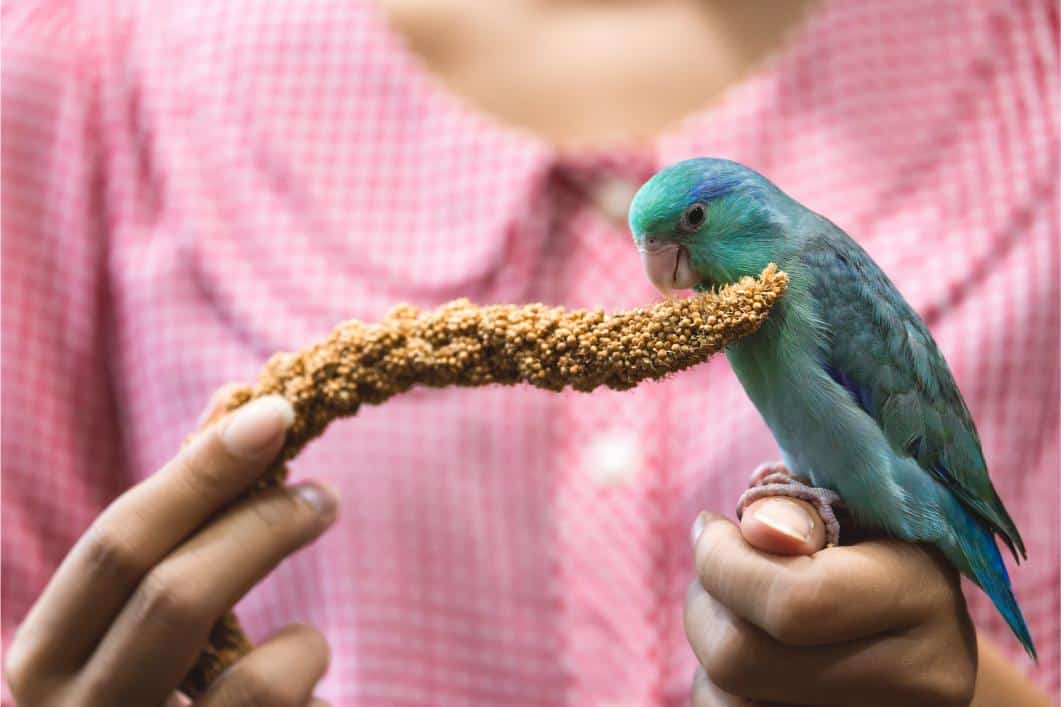The Best Diets for Exotic Pets: 6 Nutrition Tips for Reptiles, Birds, and Small Mammals

Our dedicated pet owners at South Texas Avian & Exotic Hospital know that nutrition for birds and small pets is important. Choosing an exotic pet diet can be difficult, but our team has some nutrition tips to share to make it a little easier.
Know Your Category
Exotics pets and birds typically fall into a major dietary category. Do you know which one your pet is?
- Carnivore
- Herbivore
- Omnivore
- Insectivore
Knowing this information is key to starting off on the right foot when it comes to the best food for reptiles, birds, and small mammals.
Avoid Overfeeding
It is very common for our veterinary staff to diagnose obesity in our exotic patients. A more sedentary lifestyle in captivity combined with less-than-optimal nutrition choices on our end can be problematic.
In particular, species including rats, rabbits, guinea pigs, hedgehogs, and certain reptiles are prone to packing on the pounds. Routine wellness visits for our exotic pet species allows us to help you determine what your pet’s body condition is and set goals for correcting any issues.
The Nutrition and Behavior Connection
Eating plays an integral role in the behavior of many exotic animal and bird species, and natural instincts like foraging and hunting need to be fulfilled.
Do your best to help your pet achieve their nutritional needs through the most natural means possible. There are many creating ways to help recreate the ways that these animals would feed in their natural habitat. Ask us if you need help!
Variety is Life
Some species need to stick to a pretty tight window of nutritional sources, but just like humans, eating a variety of foods can provide a better nutritional spectrum. Be sure that your pet is getting their vitamins, minerals, and veggies as appropriate by mixing it up. Of course, be sure what items are safe and/or recommended for your special friend.
Supplement as Needed
To achieve their nutritional needs, some pets may need to be supplemented with pellet feeds or vitamin/mineral supplements. Ratios of certain vitamins and minerals may need to be very specific for certain exotic pets, and knowing what these are and how to best hit them can help to set your pet up for success. Don’t worry, that is what we are here for. Contact us so we can help get you on the right track.
Research Species Quirks
Every individual exotic pet and avian species has their own nutritional needs and quirks. As with all of this information, understanding your species of choice thoroughly is really essential to success. Knowing that guinea pigs can’t manufacture their own vitamin C, or that rabbits require a lot of roughage to thrive, or that avocados are toxic to your African Gray Parrot is important!
Exotic pet diet choices really make or break whether a pet thrives or not. We hope that our tips will help you to better care for your pet, but don’t ever hesitate to ask if you need help or advice, we are standing by.
